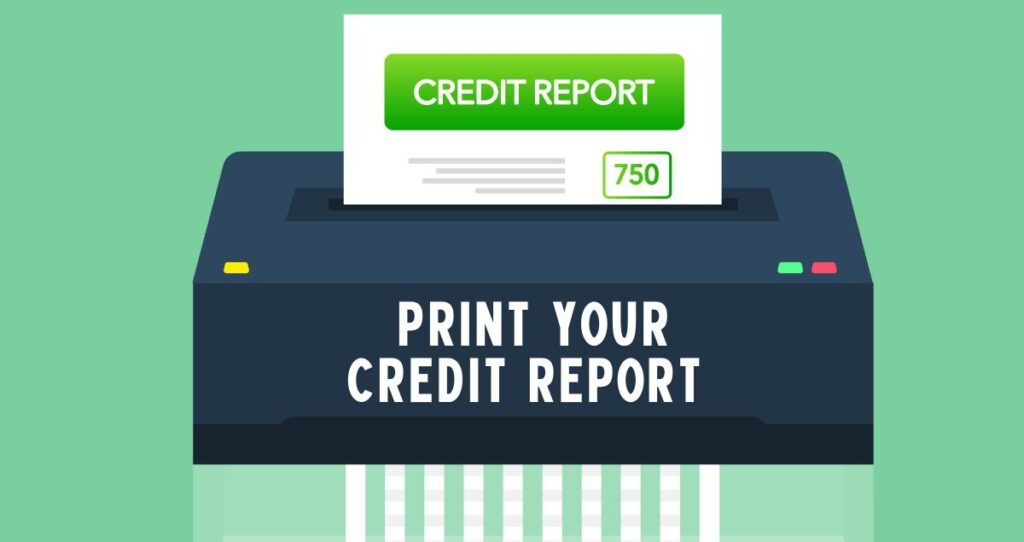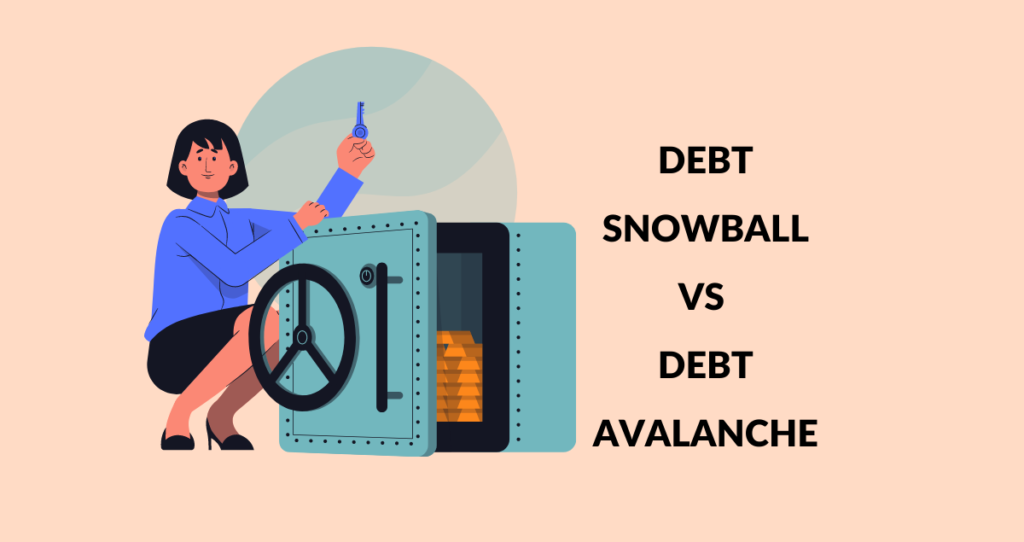I never thought my credit score was that important until I got denied my first credit card. Then, I started learning why credit scores are important and all the possible ways a credit score can affect your life.
Your credit score affects your life and finances by dictating the types of loans you qualify for and the interest rates you pay. Your credit score can also help you qualify for different products and services such as apartments, utilities, and even your job. In this article, I will show you the impact of your credit score in your everyday life and why lenders and many businesses use credit scores when you apply for loans.
Why is a credit score important?
Lenders use your credit score to determine your creditworthiness, a measure of how risky it is to lend you money. As your credit score goes lower, it becomes harder to meet your financial obligations, making you a risky borrower. For this reason, lenders will deny you credit.
People with bad credit scores tend to fall behind on their monthly payments and default on their loans. Since your credit score is calculated using information pulled from your credit reports, your score is a strong indicator of your financial behavior and money habits. That is why it is heavily used in the lending industry on various financial products.
People with good credit scores tend to qualify for loans with lower interest rates. Additionally, they get good services on certain products and services, saving them money in the long run. For example, the landlord can waive your security deposit if you have a good credit score.
What is a credit score?
A credit score is a three-digit number ranging from 300 to 850. The higher your score is in this range, the better your credit score. Three major credit reporting agencies(Equifax, TransUnion, Experian) and other credit rating companies, such as FICO, calculate your credit scores using credit scoring models. Common scoring models include FICO Score Models and VantageScore Models, resulting in FICO Scores and VantageScores.
Your lenders, such as banks, credit card issuers, and other businesses that manage your accounts, report all your account activities to major credit bureaus. This information is then used to make your credit reports and calculate your credit score. Any missed payments, new account activities, late payments, credit utilization, etc., will be on your credit reports. Your scores go higher or lower depending on what was reported to credit reporting agencies.
By default, credit scores increase from the responsible use of credit accounts, while missing your credit accounts results in lower credit scores.
For example, having negative items on your credit reports, such as late payments, bankruptcies, foreclosures, accounts in collections, etc., will drop your credit score.
What affects your credit score?
Each credit score is usually calculated based on information from your credit reports grouped into 5 categories. Here is everything affecting your credit score.
- Payment history, which accounts for 35% of your FICO score and 40% of your VantageScore
- Credit utilization accounts for 30% of your FICO score and 20% of your VantageScore.
- The age of your credit accounts for 15% of your FICO score and 21% of your VantageScore, together with your credit mix.
- Credit mix, which accounts for 10% of your FICO score.
- New account activities, a.k.a hard inquiries, account for 10% of the FICO score and 5% of VantageScore.
- The amount you owe, which accounts for 3% of your VantageScore.
How does your credit score affect your life and your finances?
We are in a world where your credit score affects your everyday life in every corner. Everywhere you go, businesses need to know what your credit score is. For example, it is unlikely that you will get a credit card without pulling your credit reports. Employers also use credit scores to determine who to hire or deny a job. The following are ways your credit score affects your life and finances.
1. Your credit score affects your mortgage approval and the interest you pay
Mortgage companies use your credit score to determine your mortgage approval and the interest you will pay. You will not qualify for a mortgage with a bad credit score. If you qualify, you will pay a higher interest rate.
QuickensLoans says you need at least a 620 credit score for a conventional mortgage and 580 for FHA loans. Anyone lower than these credit scores is not approved for these types of loans. In addition to approving you for loans, your credit score affects your life and finances because it is used to determine the interest you will pay on these mortgages.
In other words, your score can determine the kind of house you buy and how much it costs to buy that house. For example, having a 740+ credit score can help you pay a much lower interest rate than someone with a 620 credit score. This means your monthly payment will be much lower, and you will save money on interest changes.
2. Credit score affects your life when buying a car
It is unlikely that you will purchase a brand-new car with cash. In other words, you might need to finance your car purchase with a car loan. Before you qualify for the loan, the loan provider will pull your credit report to see if you qualify. Like the mortgage we just discussed, your credit score will affect your approval rate for a car loan and the interest rate you pay on a loan.
Although there is no limit credit score for getting an auto loan, some lenders might deny your loan application if your credit score is below 620. If you get approved with a bad credit score, you should expect to pay a higher interest rate.
According to NerdWallet, borrowers with credit scores of 661 or higher make up almost 65% of car financing products. As the credit score decreases, the average annual percentage rates(APRs) borrowers pay. For example, people with a credit score between 300 and 500 pay 12.84% APR for new cars and 20.43% APR for used cars on average. You can easily see that the lower your credit score, the more it costs you to borrow money. Paying that much APR on auto loans makes it difficult to enjoy your daily life. In other words, your credit score affects your life and finances by determining the interest rates you pay on loan products.
3. Your credit score determines your approval rate and security deposit when renting an apartment or a house
Before credit scores became a thing, landlords focused on other factors such as your income and information from recent places where you lived. Although this information is still used to determine your rental application approval, most landlords use your credit score as part of their application process.
For example, your landlord can approve you for an apartment if you have a good credit score without checking your references. Every apartment you go to will require you to have a security deposit that covers your rent if you do not pay it off. Your security deposit can also cover cosmetic repairs and cleaning after you leave. By having a good credit score, your landlord might lower your deposit or waive it altogether. Instead of depositing a month or two months of rent, you might deposit only 10%.
How and why does your credit score affect your rental terms and daily life? It is not the number that landlords worry about. It is what the score represents. A good credit score shows that you pay your bills on time and meet all terms of your loans. Consumers with bad credit scores usually fall behind on their monthly payments, resulting in defaulting on their loans. That is why you get denied credit or an apartment when you have a bad credit score.
Related: 9 ways to get an apartment with bad credit
4. Your credit score affects your life and finances when refinancing a loan/mortgage
Your credit score comes in handy when you are refinancing a loan. Refinancing a loan means replacing it with another one with a lower interest rate and favorable terms. Like any other loan application, creditors must evaluate your creditworthiness before you can refinance your loans.
The refinance process allows you to lower your interest rate, get equity from your property, or get better terms.
However, before refinancing your loan, the lender will check your credit score. You will qualify for a much lower interest rate if you have a good credit score compared to when you bought your property. Improving your credit score will help you qualify for a lower interest rate when refinancing.
5. Insurance companies use your credit score to give you better terms
Insurance companies want clients who are financially responsible and abide by the rules. In other words, these companies prefer people who take fewer risks. Risk-averse people take less risk, which leads to fewer troubles in their lives. Less trouble means that you give insurance companies free money every single month.
Your credit score helps insurance companies to evaluate how financially responsible you are. A higher credit score means you meet all your financial obligations and take every step necessary to protect your credit. That is why you will most likely qualify for better insurance when you have a good credit score.
A bad credit score can make your life miserable. No insurance company will give you better terms when you have bad credit. The lending industry and financial services are based on risk assessment. The lower your credit score, the riskier you become. Hence, it will cost you more to borrow. That is how credit score directly impacts your finances and everyday life.
6. Your credit score is used when you are setting up utility accounts and a phone plan
If you own a cellphone, own a house, or live in an apartment, you have probably been asked to provide your credit score when opening your utility accounts. Most utility companies and phone service providers collect money from you every month when you make payments.
Some people fall behind on their balances or never pay their bills. That is why a good credit score shows you can meet your monthly payments. Some utility and phone companies give you discounts or waive security deposits when you have a good credit score. In other words, your credit score impacts your life and dictates the terms of your financial obligations.
7. Some companies use credit scores when hiring employees
Hiring and retaining great employees has become a major challenge for many businesses. Traditionally, resumes, references, and interviews are major factors that hiring personnel use to evaluate the qualifications of employees.
In recent years, however, many businesses started including credit scores in their hiring processes. Since credit scores reflect candidates’ credit account activities, a person with a good score is more finally responsible. That is, they pay their bills on time, keep up with their accounts, and avoid financial decisions that can jeopardize their finances. To keep up with these terms, these employees must fulfill the obligations of their jobs and stay employed all the time. A person with a good credit score is more likely to be a good employee. For this reason, some employers prefer candidates with good credit scores.









